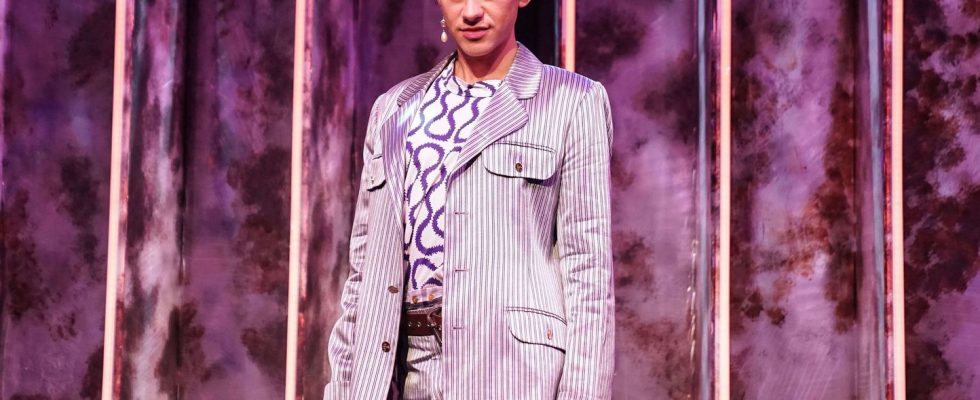Less than a month before Eurovision, which will take place in Malmö (Sweden), tensions regarding Israel’s participation in this 2024 edition remain high. On Tuesday, in a press release, the European Broadcasting Union (EBU), which organizes the competition, denounced “the attacks and harassment”, particularly on social networks, towards some of the artists in the running.
The organization says it “recognizes the strong emotions (…) and the debate provoked by the inclusion of the Israeli song” and wishes to emphasize “that all decisions [sur ce sujet] are the responsibility of the EBU and not the artists. And added that she is determined to “work with stakeholders to promote the values of respect, inclusion and understanding, both online and off”.
” Death threats “
The press release does not cite any specific artist. However, we can assume that he is referring to Israeli singer Eden Golan, who will represent her country this year, and who, according to AFP, “received death threats on her Instagram account”. Luxembourger Tali Golergant, born in Israel to an Israeli mother and a Peruvian father, is also massively insulted and mocked on social networks.
The British Olly Alexander is being urged by defenders of the Palestinian cause to boycott Eurovision. An online petition to request its withdrawal has already collected more than 16,000 signatures. Before a concert in which he appeared on Sunday in London, demonstrators brandished signs and distributed leaflets with his image urging the former leader of the group Years and Years to renounce his participation.
Olly Alexander signed an article in November accusing Israel of apartheid and genocide against the Palestinian people. “I signed because I am in favor of a ceasefire, of stopping the fighting as soon as possible. I want peace. I want this to be a way to achieve peace. That’s always what I think,” he declared to 20 minutes early March.
Music and politics are not airtight
The EBU constantly asserts that Eurovision is “apolitical” but this criterion frequently clashes with reality: music and (geo)politics are not hermetic to each other and, if some of the 37 competing artists do not (legitimately) wish to comment on Israel’s participation, others express their point of view.
At the end of March, Olly Alexander signed, alongside around ten other artists in competition this year, a letter demanding a ceasefire in Gaza and the release of the October 7 hostages. “In view of the current situation in the occupied Palestinian territories, and particularly in Gaza, and in Israel, remaining silent makes us uncomfortable,” explained the signatories.
“As a queer Irish person who has experience of the occupation, I cannot and will not remain silent,” Bambie Thug added on his Instagram account. “I am aware of the calls to withdraw from Eurovision, but if I backed out it would mean there would be one less pro-Palestinian voice in the competition. My heart and my solidarity have always been on the side of the oppressed and I will use the platform given to me to advocate for change,” he continued.
Frequently asked questions to justify Israel’s participation
In recent months, outside the sphere of Eurovision, many voices have been raised to demand the exclusion of the Jewish state from the competition due to the heavy toll of the war in Gaza.
Artists from several countries called for a boycott of this edition if Israel’s participation was maintained. Politicians including Belgian Culture Ministers Bénédicte Linard and Benjamin Dalle have also spoken out publicly in favor of the exclusion of Israel.
After rejecting two song proposals from the Israeli delegation, on the grounds that the texts were “political” and therefore infringed Eurovision regulations, the EBU ended up validating Hurricane with whom Eden Golan will represent his country in Malmö. Faced with protests, the organization ended up publishing specific FAQs in order to justify Israel’s presence in the 2024 competition.
Regarding possible demonstrations that could be held during the competition, the final of which will be held on May 11, the organizers assure that they “understand that people want to make their voices heard and support the right to demonstrate for those who will do so peacefully”.

